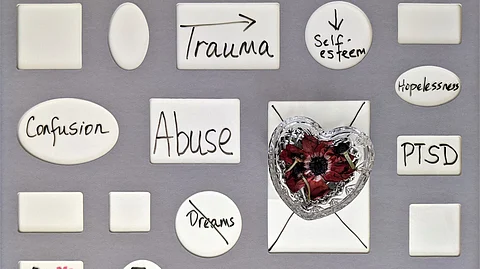

More than one in eight children (12%) receiving implanted cardiovascular defibrillators (ICDs) for heart rhythm problems exhibit signs of post-traumatic stress disorder (PTSD), according to a new report in Heart Rhythm, the official journal of the Heart Rhythm Society, the Cardiac Electrophysiology Society, and the Pediatric & Congenital Electrophysiology Society, published by Elsevier. Importantly, trauma is even more of a problem for their families, with nearly half of parents (47%) meeting the screening criteria for PTSD. This finding highlights the need for clinic-based screenings for both pediatric patients and parents to assess their psychological functioning and connect them with resources to optimize their psychological health and overall wellbeing.
The study examined the prevalence of PTSD in pediatric ICD patients and their parents and identified the factors associated with its incidence. Fifty patients ranging in age from 8-21 from a single medical center participated, while 43 parents of young patients (aged 0-21) took part. All completed electronic surveys that included demographic questions and psychological assessments based on widely used measures of anxiety, depression, PTSD, and ICD acceptance.
“We were surprised that 47% of the parents – especially mothers -- met the criteria for PTSD symptoms, compared to 12% of the children and adolescents themselves. These results remind us that childhood illness can affect the entire family and suggest a need for continued focus on how pediatric patients and their families are coping and adjusting. While advances have been made for trusted providers to assess patient mental health in a medical setting, there is a need to develop ways to attend to both patients and families,” explained lead investigator Lauren M. Schneider, PsyD, Department of Psychiatry and Behavioral Sciences, Stanford University School of Medicine, Stanford, CA, USA.
Compared to patients without PTSD, those with PTSD were more likely to have already experienced a life-threatening ventricular arrhythmia (versus those who receive the implant because they were at risk for one); met the clinical cutoff for depression; or had anxiety about the possibility of a painful ICD shock to regulate their heart rhythm. While only about 20-30% of patients who receive ICDs will ever receive such a shock, fear about the possibility can cause emotional distress, which may lead to PTSD.
“Patients and their parents vary in their responses to medical trauma and their coping strategies and abilities. We need to better understand how to prevent trauma from becoming PTSD, which can negatively affect pediatric ICD patients’ outcomes,” added Dr. Schneider.
More and more attention is being directed at the overall health and wellbeing of pediatric patients, but often the focus is on the immediate disruption. The study points to the need to better understand both patient and family needs through screenings to identify those especially at risk. Having a heart condition, needing surgery, or possibly having a cardiac arrest can be difficult for anyone. A parent may have witnessed their child’s cardiac arrest firsthand and then called 911 or performed CPR. They often anxiously await their child’s surgery and then are involved in ongoing medical management, all of which can be stressful and potentially trigger a traumatic response. For those already struggling with depression or anxiety, the effect can be more lasting and severe.
Dr. Schneider noted, “Stressful events rarely occur in isolation, and new stressors can trigger psychological distress. Having providers take a moment to check in and assess how patients and their parents are doing can be incredibly meaningful, as can validating and normalizing emotional challenges or problems.”
An accompanying editorial notes that there has been limited work published to date on the emotional aspects of ICDs for pediatric patients.
“The present study provides important data on PTSD prevalence and factors in pediatric patients with ICDs and their parents. Addition of these data to the current paucity in the literature is an excellent and significant foundation for larger multicenter studies,” said the editorial’s authors, Vicki A. Freedenberg, PhD, RN, and Charles I. Berul, MD, FHRS, Children’s National Hospital and George Washington University School of Medicine, Washington, DC, USA.
The editorial identifies a number of ways to build on the study’s findings, including looking at related factors that affect the development, extent, and duration of mental health issues or the inclusion of comparison groups. (SP/Newswise)
